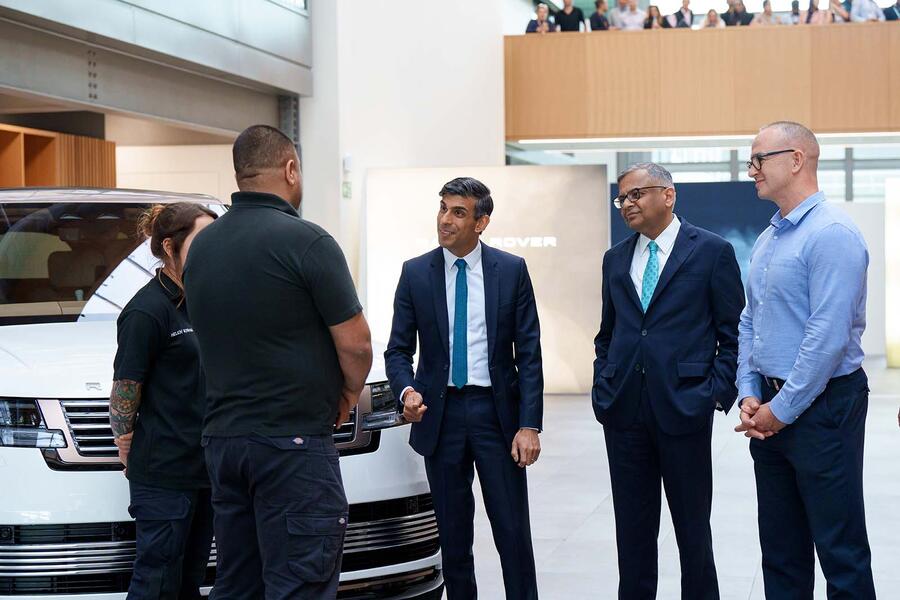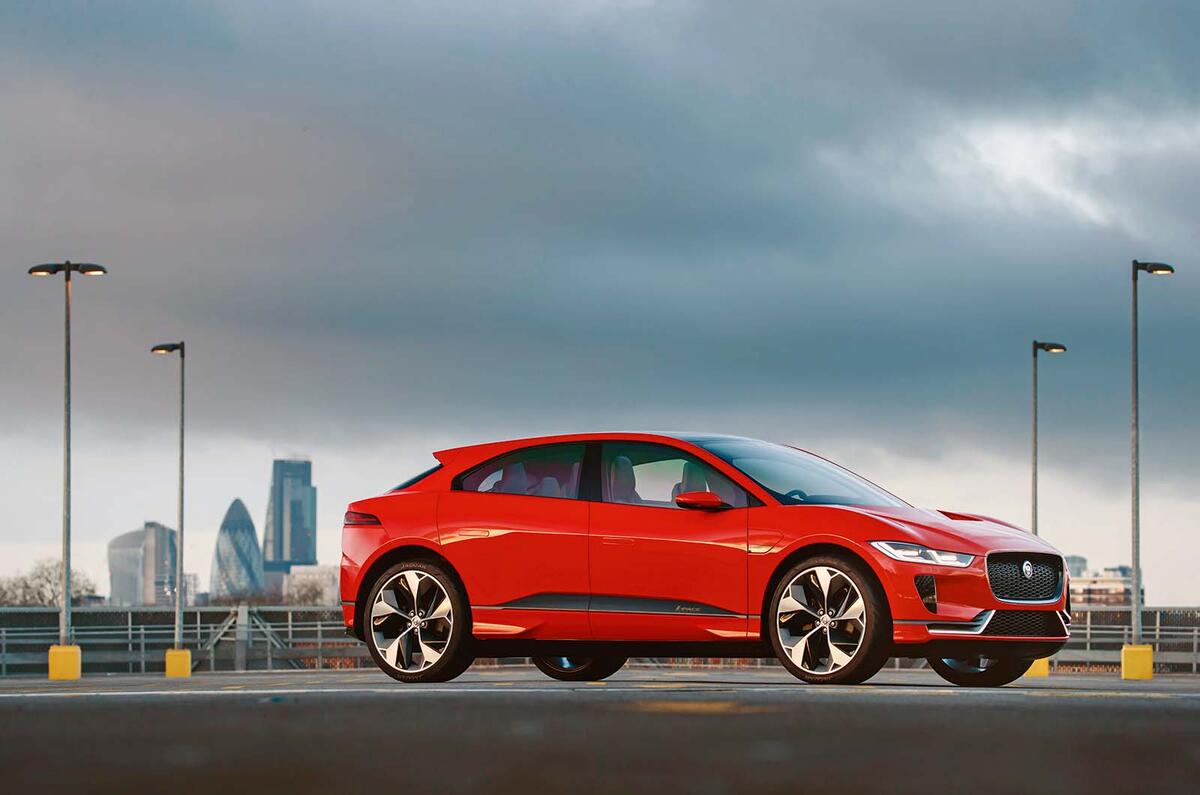Jaguar Land Rover (JLR) CEO Adrian Mardell has emphatically welcomed the news that parent company Tata will build an electric vehicle battery factory in the UK.
Speaking at the firm's latest financial briefing (where he announced drastic upticks in revenue and profit), Mardell suggested that long-awaited confirmation of a local battery supply would be pivotal for the entire UK automotive industry, rather than just JLR itself.
"This will help build a stable, secure battery cell reply with competitive costs and to let us deliver our strategic vision of a fully electric range of British electrified vehicles by 2030," he said, on how the news directly impacts JLR.
He added: "This news is fundamental for an EV ecosystem in the UK, not just for JLR but the automotive industry in the UK. I am delighted with the news."
As announced last week, in an investment totalling more than £4 billion, the Indian industry giant will establish local battery production with a view to starting supply to "anchor customers" – initially named as JLR and Tata Motors – as soon as 2026.
Tata's plant will have a capacity of 40GWh, higher than the eventual 38GWh targeted for Envision's battery factory next to Nissan's plant in Sunderland. The Faraday Institute forecasts that the UK needs a total of 100GWh of local capacity by 2030 to satisfy demand for EV production, rising to 200GWh by 2040.
Making the announcement last week, Tata Sons chairman N Chandrasekaran said: "I am delighted to announce the Tata Group will be setting up one of Europe's largest battery cell manufacturing facilities in the UK. Our multi-billion-pound investment will bring state-of-the-art technology to the country, helping to power the automotive sector’s transition to electric mobility, anchored by our own business, JLR. “With this strategic investment, the Tata Group further strengthens its commitment to the UK, alongside our many companies operating here across technology, consumer, hospitality, steel, chemicals and automotive.”
The firm has yet to officially confirm whether the factory will be sited at Bridgewater in Somerset – a location historically linked with battery factory plans from various automotive manufacturers including Tesla, Rivian and JLR itself.
Tata will produce “sustainable battery cells and packs for a variety of applications within the mobility and energy sectors”, following a "rapid" ramp-up phase during which the plant will be built and begin operations inside three years.
Tata also plans to “maximise its renewable energy mix” at the battery factory, ultimately targeting 100% "clean" power. A core component of its sustainability ambitions will be the recycling of batteries in-house, aiming to create a “truly circular economy ecosystem” by recovering raw materials for reuse in new batteries.
Many commentators view Tata's investment as the most important spend on the UK's automotive industry since Nissan agreed to build its Sunderland plant in 1984.
Indeed, UK prime minister Rishi Sunak hailed Tata's selection of the UK for its first battery factory outside India as "a huge vote of confidence in Britain".










Join the debate
Add your comment
The EEC should never have happened, from then on prices for nearby everything went up, only a few EEC members benefitted from the agreement and as we've seen recently some have had to leave for various economic and apparently unforeseen complications, now fifty odd years I think later what are we realising?, yes, it's not working anymore for the few who benifitted, was it the right thing to leave?, well yes, won't be overnight upturn for our/ your country but hopefully our children will have a happier existence than we have,so, stop moaning, backbiting and do some constructive discussions.
Nearly ten years on and the leave/remain argument rumbles on. "If we hadn't left this would have happened, if we stayed this would have happened" YAWN.
We have LEFT Europe, let's get on with it! I would rather the UK government invest in the UK than be part of an attempt to rejuvenate the economy in the olive groves of Sicily.
We are out of the EEC, can we all concentrate our efforts to make Britain the country we now believe in and forget the European "dream"?
Yep, as predicticted in my post the haters are out in force. No doubt when the French goverment bailed out Renault they kept quiet, and kept their head buried when Germany gave a blank cheque to Tesla.
Not so much a hater, more someone just stating facts
Nope there's aggrieved parties spitting venom at this UK job creation project.